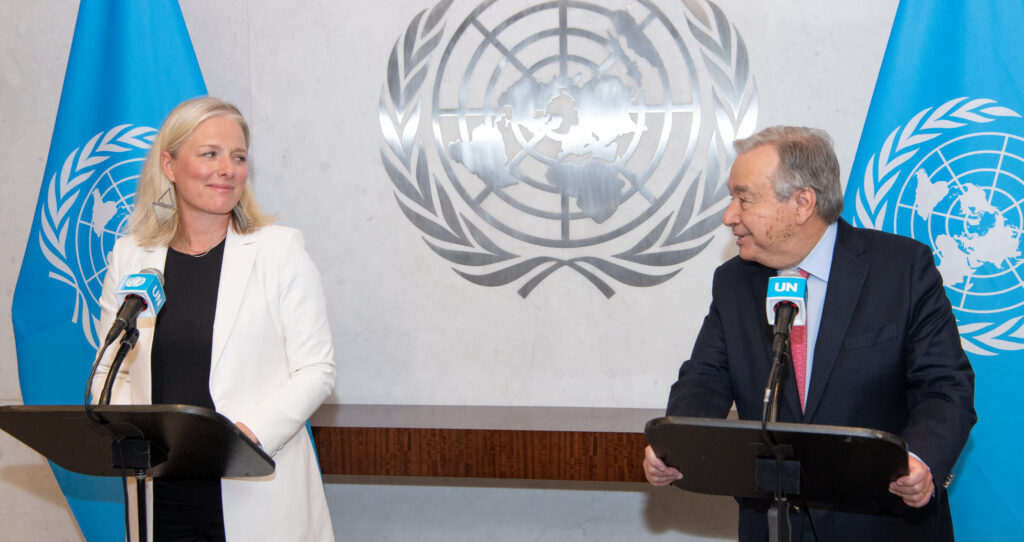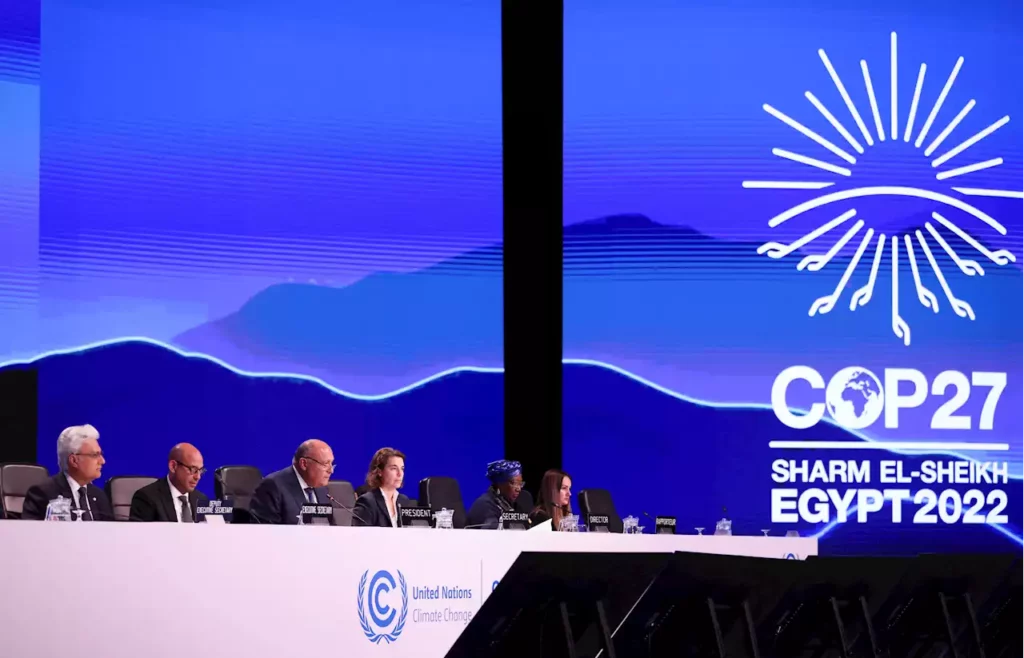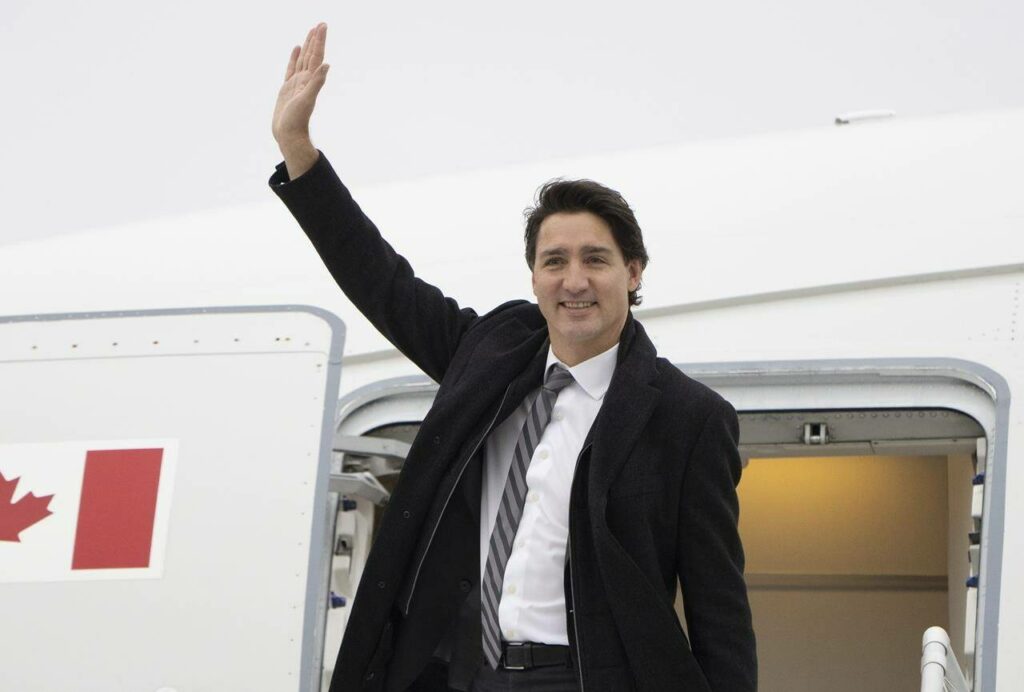Canada’s former Environment Minister Catherine McKenna, now gone on to her reward as the unelected “Chair, High‑level Expert Group on the Net Zero Emissions Commitments of Non-State Entities”, produced a report at COP27 that doubled down on climate alarmism even as that conference was failing to agree on emissions and winter was starting to clobber the poor, elderly and marginalized. The expert report comes from a panel whose members are not in fact experts except in gaming the system. McKenna is a lawyer with a climate consulting business; the Columbian runs a coffeehouse chain but used to be in the beauty business; the Chinese Communist was a banker and so on, and while the Australian Greenpeace alumnus with a climate consulting business who routinely bills himself as “a climate scientist with thirty years’ experience in the science, impacts and policy responses to climate change and stratospheric ozone depletion” does have a BSc in “Environmental Science and Physics”, the only PhD among the group is in “International Relations”. But they talk like experts.
BTF
The report insists that “We know what we need to do: peak global emissions in just three years, by 2025, and cut emissions in half in less than eight years, by 2030.” But it does not claim we know how to do any such thing because obviously we don’t. We don’t know how to peak emissions by 2025, especially not with China cranking out coal plants as fast as it does cut-rate consumer electronics. And we very certainly don’t know how to cut them in half in eight years; it is one of the odd fatuities of politicians that the more emissions targets they miss, the more serene confidence they exude that they will absolutely hit the next one. So full rhetoric ahead.
The report contains four references to “absolute” rather than “net” reductions. And not all are depicting a future without any CO2; a typical passage says:
“Non-state actors must have short-, medium- and long-term absolute emissions reduction targets and, where appropriate, relative emissions reduction targets across their value chain that are at least consistent with the latest IPCC net zero greenhouse gas emissions modelled pathways that limit warming to 1.5°C with no or limited overshoot, and where global emissions decline at least 50% below 2020 levels by 2030, reaching net zero by 2050 or sooner.”
Of course the insider jargon about modelled pathways imposes harsher constraints than is immediately obvious. And note particularly, as Nemeth and Wallace do, the phrase “across their value chain”. No more shifting or offsets here (unless you are, say, a delegate to COP27 or some other warming bigwig with urgent business in exotic locales). As they warn, “This includes ‘embedded emissions within fossil fuel reserves’ with prioritization of ‘urgent and deep reductions of (absolute) emissions’ rather than the use of carbon credits.”
The appetite proverbially grows with the eating. Though what is odd here is that the appetite grows without eating; the world is nowhere near the path to Net Zero and yet the zealots are calling for more.
It’s not as odd as it seems. Since many climate alarmists insist that the very mild warming since 1850 has already unleased “havoc” in the form of terrible weather we never saw before, it’s not enough to get to Net Zero at even higher levels of CO2 or, indeed, current ones. Some insist that we actually need to start sucking CO2 out of the atmosphere, in an attempt to return to Little Ice Age temperatures and conditions.
It sounds silly. And it is, not least because the LIA was characterized by crop failures and terrible storms. But it is consistent with their premises and we do prefer consistency to sheer slipperiness because the latter is impossible to grapple with and refute. Still, when it comes to consistency, if you reason logically from established premises to absurd conclusions, the consistent thing to do is revisit the premises. Which is not happening here.
To be fair, the panel is consistent in lashing out at “greenwashing”, the practice whereby companies trap themselves with pro-Net Zero rhetoric in quest of cheap PR points and then try to fake it when they too discover that actually making stuff and moving it around without using energy doesn’t work. As Time cheerleads (the headline being “Corporate ‘Greenwashing’ Must End if World Hopes To Meet Climate Goals, U.N. Warns”):
“’If you’re saying to the world, “I am net zero,” then there is a price of admission,’ says commission chair Catherine McKenna, a former Canadian Minister of Environment and Climate Change. ‘You need to walk the talk, you need to deliver on it.’”
Which is of course true. Otherwise you’re just slippery. And here’s something in the Time story for all the energy companies that jumped on this bandwagon in quest, it seems, of assisted suicide:
“The report also offers particularly pointed recommendations for the energy industry’s climate commitments: companies need to stop investing in new fossil fuel supply if they want to claim they are committed to net zero emissions.”
Yup. The people who want to end oil and gas production want to end oil and gas production. Really. The report includes this recommendation:
“On oil and gas: (i) not allow permits for exploration for new oil and gas fields, (ii) not allow expansion of oil and gas reserves, and (iii) end oil and gas production. New fossil fuel-based electricity generation should not be permitted.”
Here’s another point Time makes, of concern to all firms that bought the Kool aid and are now contemplating with growing concern the expectation that they will drink it:
“One area that’s likely to make waves is the report’s call for companies to use their lobbying influence to push for climate-related rules and regulations.”
See then you’d be forced to do what you pretended you wanted to do and knew how to do and not only do you not actually want to, you don’t know how to.
The article ends feebly by violating one of the key rules of writing opinion, even if you call it news. It ends by saying time will tell. Literally:
“Time will tell whether non-state actors embrace the rules of the road laid out in the report. And it’s no small question: getting clarity on corporate commitments will shape policies, politics, and economies—not to mention our future climate.”
Time will also tell whether governments force them to. But Time won’t, whereas we will, and now. Governments won’t, because it would destroy their economies, kill their people and do nothing to fix whatever they think is wrong with the weather.
It’s not that it was greenwashing, exactly. It’s that they never had any idea how to do it, but didn’t know they didn’t know. And while people like McKenna remain serenely above the fray hurling thunderbolts down into it, those on the ground are discovering that it’s not possible.



How are these people with no credentials, no constituency, with absurd ideas of how the world really works, no clue of what benefits society as a whole, get a platform and are taken seriously by the like minded? As a taxpayer we have paid for these people to be at this conference in a luxury setting, and we are already paying for the economic and social destruction they recommend.
"Gross Zero" is likely a better moniker for McKenna than "Climate Barbie" employed by the somewhat bombastic Rebel Media as it encompasses the economic nihilism and humanitarian disregard implicit in her advocacy. 'Time will tell' if there is sufficient awareness of the energy poverty risks of this coming and future winters and further awareness of causality to observe any meaningful changes in sentiment. If not, we in the EU and Anglosphere are on a cold hard death march orchestrated by factions selling hysteria and powered politically by ovine bliss.